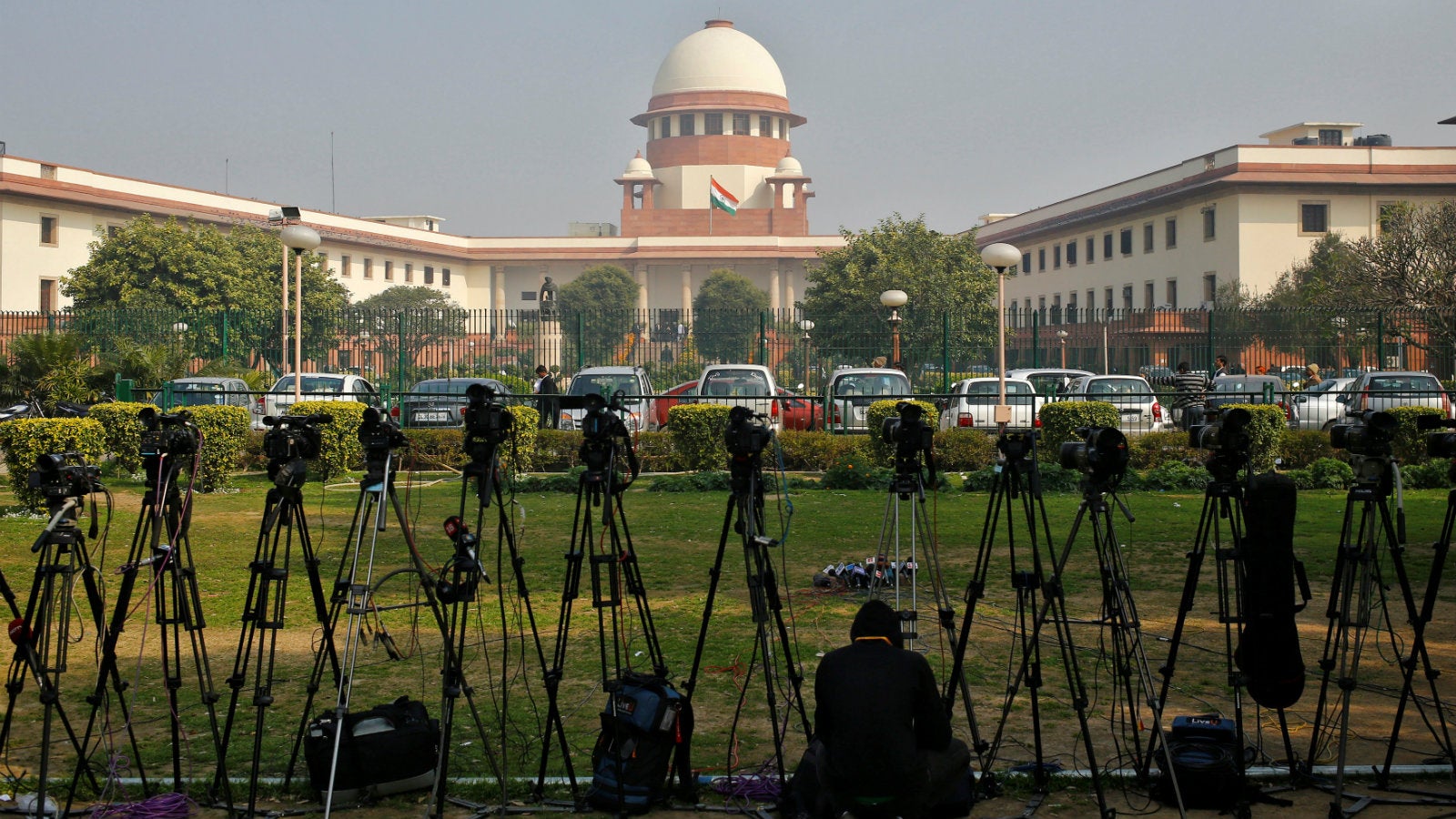India’s top court won’t re-examine if mosques are essential to Islam
One of India’s longest-running and most politically polarising court cases entered a crucial phase today (Sept. 27).


One of India’s longest-running and most politically polarising court cases entered a crucial phase today (Sept. 27).
With a 2:1 majority, a three-judge bench consisting of chief justice Dipak Misra and justices Ashok Bhushan and S Abdul Nazeer has declared that there is no need for a larger bench to reexamine a 1994 supreme court ruling that said that a mosque is not essential to Islam.
This has far-reaching consequences for the dispute between Hindus and Muslims over a religious site in Ayodhya, a town in the northern state of Uttar Pradesh, which has roiled the political and social landscape of the country for decades.
On Sept. 27, a majority judgment co-authored by Misra and Bhushan said that the context of the 1994 judgement was in relation to the acquisition of land, and not a religious matter. But in his dissenting judgment, Nazeer said that what is essential to religion, as laid down by the 1994 Ismail Faruqui case, was arrived at without comprehensive examination, and that it needs to be re-examined in detail. He added that the observations had influenced the Allahabad high court in its judgement over the Ayodhya title dispute, which divided the site into three.
Since the 16th century, the Babri mosque had stood on a site that some Hindus believe is the birthplace of Lord Ram, the protagonist of the epic Ramayana. Determined to build a Hindu temple by replacing the mosque, thousands of kar sevaks (religious volunteers) descended upon the mosque in December 1992 and tore it down. The incident sparked large-scale communal violence that killed over 2,000 people across the country, and raised concerns over the rule of law, freedom of worship, and the secular identity of India. The courtroom battle over the land has remained unresolved ever since, but the final hearing in the case began earlier this year.
In February, the supreme court started hearing appeals against an Allahabad high court judgment of 2010 which divided the site into three, giving Muslim parties a third of the land on which the mosque had stood.
Representatives of the Muslim side had argued that a fair decision on the larger case couldn’t be made without reexamining the controversial judgment from 1994 which ruled on the role of mosques in Islam. In the 1994 Ismail Faruqui case, India’s supreme court had said:
“A mosque is not an essential part of the practice of the religion of Islam and Namaz (prayer) by Muslims can be offered anywhere, even in open.”
As a result, they allowed the Indian government to acquire the 2.33 acres of land on which the Babri mosque had stood. The 1994 Ismail Faruqui verdict was heavily criticised by Muslim groups and their representatives, who argued that it was a sweeping decision that threatened the secular basis of the Indian state, and could have a bearing on the land dispute case.
In his joint judgment with CJI Misra, Bhushan said on Sept. 27 that the present case would be decided on its own facts, and that the Ismail Faruqui judgement would have no impact on it.
But the fact remains that, in the years since the mosque was demolished, the dispute has pitted India’s Hindu majority against its Muslims. When the final verdict does come for the closely watched case, it will have a bearing on the very identity of India, especially as it approaches the 2019 national elections.